Into the 4th Week of COVID-19 Lockdown
It’s the strangest spring we’ve ever known, eh? As I type this the trees outside are in bloom, and over two and a half billion people’s movement have been restricted by a life-form so tiny, billions would fit on a pinhead. Governments everywhere are scrambling to work out how best to react, trying to solve an equation involving the deaths in the tens of thousands, restrictions on the lives of millions (with associated physical, economic and emotional impact) and long-term economic damage (which it itself leads to increased hardship, illness and death). It appears to me a highly complex problem, an impossible one to get ‘completely right’. No doubt studies will be done once we’re finally done with this which will shed some light on the best approaches adopted, which in turn will serve to inform the most efficient approach for when this all happens again.

Here in the UK the government has opted for a partial lock-down, allowing us to go to work if we can’t do it from home, to go shopping for essentials and to walk/run/cycle once a day. This in itself is another balancing act of course: the more freedoms we’re allowed the more we’ll allow the virus to jump from host to host until it eventually reaches someone who can’t fight it off. More restrictions mean a greater cumulative effect of physical, financial and mental atrophy on tens of millions. Concurrent infections are reduced, enabling the health system to cope better, but the overall duration of the pandemic is extended more months off into the future. Some countries have opted for tighter lock downs than the UK, some for much looser ones. Lock-down durations are bound to vary too. Again, I think we’re only likely to understand the effectiveness of different approaches when studied in retrospect.

The lock-down here is in its fourth week, and we’ve been told it will last a minimum of six weeks. Those of us most likely to be more severely impacted by infection have been advised to stay at home for three months (at least). We’re all spending a disproportionate amount of our time staring at charts of infections and deaths. The UK government daily briefings have shifted from seismic announcements in the first week or so to pretty-much repeat performances, telling us pretty much the same thing over and over: stay at home, protect the NHS, save lives. They feel almost mundane now, if being told about the deaths of hundreds can ever be considered ‘mundane’.
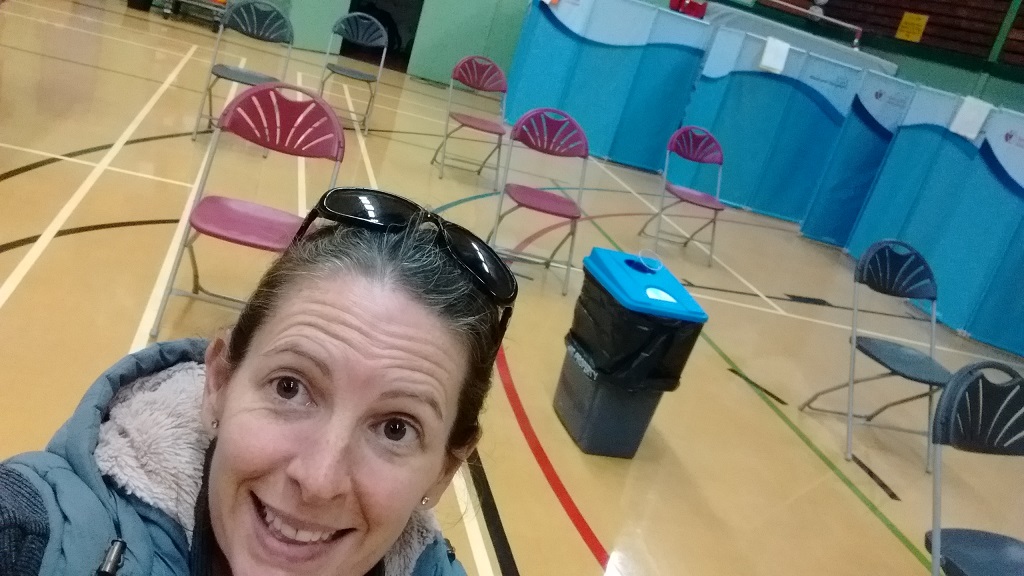
We’re all being affected differently. Ju and I have this easy, we know. If this had happened in 2012, we’d have been full-timing in our motorhome and like thousands of fellow van-dwellers, faced with a choice of staying in the van or renting somewhere to stay. We have no children to take care of, encourage and teach. We’re even pooch-less after wee man Charlie passed away in 2018. We’re in a small space here most of the time, roughly 6m by 4m, but we’re well used to it, using tricks we learned in the van to give each other the space we need.
Like everyone we’re under a greater degree of anxiety than normal, with a never-ending stream of grim news (if we allow it in) coupled with the need for social distancing. We’ve felt similar anxiety through our jobs of old, as well as when driving around in North Africa and Ukraine. We can at least recognise the effects of anxiety, if not fully fend them off. Neither of us have a salary, but our finances are arranged to cope with large fluctuations in investment income, including a complete loss of all income streams for an extended period of time (our low cost of living helps massively). We’ve not worked for the past five years, so we’ve already gone through the impact of being job-less: the guilt, loss of identity and the need to fill oceans of time. We’ve also spent 55 months travelling in the past decade, so our wanderlust is well under control. Although we miss our general freedom, we’ve mountains of memories within us, easily enough to sustain us throughout the coming months. We can still get outside to exercise, and our running club’s re-created itself as a virtual support group, with a ton of innovation surfacing (Ju ‘ran with someone’ yesterday, although they were miles apart, using her bone-conducting head phones to chat over the phone while running).

My sister Amanda works in a nearby care home, fifty hours a week hands-on caring for the occupants. She’s under far more stress than Ju and I. The work’s harder and more stressful than anything I’ve ever done, and I’m very proud of her. Like my sister there are millions of people keeping the essential activities of the country running, and Ju and I are stood out each Thursday clapping our thanks (our travels have made us far more aware and thankful for these ‘hidden-in-plain-sight’ workers). I can’t help but feel guilt at how relatively easy we have it, although that sensation precedes the pandemic by some years to be truthful. We’ve contacted everyone on our street and the adjacent one as part of a town-wide informal support network operating largely independent to the authorities, but haven’t needed to physically help anyone yet, it seems they’re all OK at the moment. We cycle to my parents’ three miles away each week to shop for them, but they’re also getting help from several people on the street, from the Breathe Easy group (the local arm of the British Lung Foundation) and from my brother-in-law and niece. My parents are clearly taken aback and very grateful for the up-swell in support.
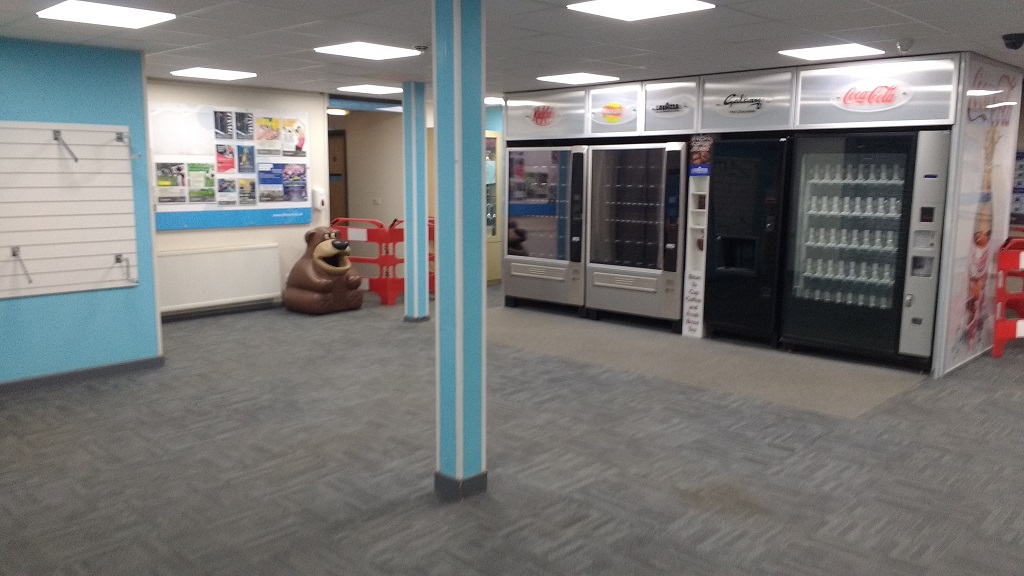
We don’t yet know anyone who’s been confirmed as infected. When we ask friends and family on Zoom calls and the like, someone always knows of someone who’s been ill, but we don’t directly know anyone. Of course we’re in no doubt of what’s happening ‘out there’, but it’s an odd experience, the invisible nature of the thing, like it’s all some sort of The Truman Show episode, and we’re unsuspecting Trumans.
We’re both using the COVID-19 tracker app to report symptoms (or lack of), which is being used by researchers to estimate how many people actually have the virus. At the moment it’s estimating around half a million adults in the UK have COVID-19 symptoms, down 70% from two million at the start of the lock-down. It’s showing around 1.6% of the people in our local Erewash area have symptoms (around 2000 people from 115,000). If we assume (almost certainly incorrectly) an even spread, that would equate to around 100 people in our town of Kimberley. No-one knows how many people are infected without even knowing about it, maybe 40 to 80% of cases according to various studies, suggesting 5 to 10 million people could have been infected in the UK at the start of lock-down (if the COVID-19 tracker app estimates are to be believed). I have no idea what to make of these numbers, even if I knew they were even remotely accurate.
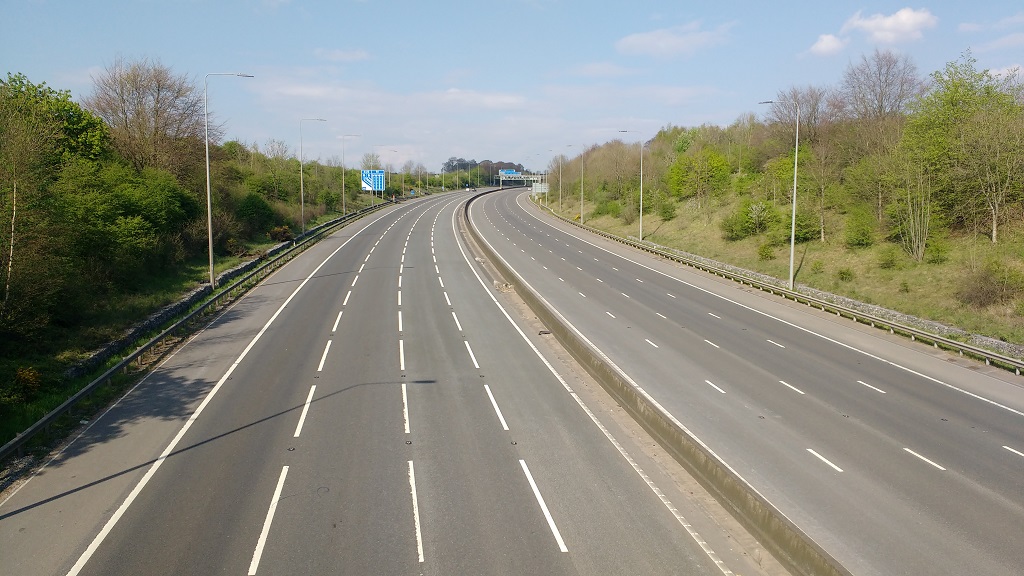
Like everyone else, we’re holding station, and trying to keep busy while we wait to see what happens next. Our biggest concern is the health of our parents. We all know vaccine work is being done apace, but since side-effects could take some time to emerge trials are necessarily many months long, so there is no quick fix. Treatments for those suffering the worse effects are being trialled, with existing drugs offering hope of quicker recovery times. With the introduction of Nightingale (field) hospitals, the NHS appears to have the capacity it needs to cope with the expected influx in patients. A few countries are even talking of tentative relaxation of lock-downs, although the UK government is being very careful not to even mention how this might proceed here. Mention’s been made of a tracking app for smart phones, which will keep a record of everyone we’ve been stood near for any length of time, and inform them to self-isolate if we tell the apps we’ve got symptoms (and vice versa). There’s endless talk of massive increases needed in testing for those infected and those who’ve fought the thing off and have the antibodies to prove it.
Only one thing is for sure I think: as individuals we have every little influence over what our government chooses to do, or how the pandemic plays out, we can only influence how we choose to feel about and react to the situation (if you subscribe to the stoic school of thought). In this regard the epidemic is no different to most external difficulties we all face in life: they’re largely out of our control, while how we react to them is largely in our control. We spoke to friends last night who told us they were loving all the time spent as a family in the house and garden, helped by the fact one them has long been set up to work from home and the other chose to be a full-time mum.
So, there we are. Our van is SORNED and in storage up the road. Most fellow travellers seem to have settled into their location, although we know of some still in Morocco waiting to return back to Europe via a ferry to France, and the Grey Gappers and several others are in Turkey, making the best of it, unable to drive back to the UK and with very limited options for flying home. We wish everyone out there the very best for the coming weeks and months.
Cheers, Jay

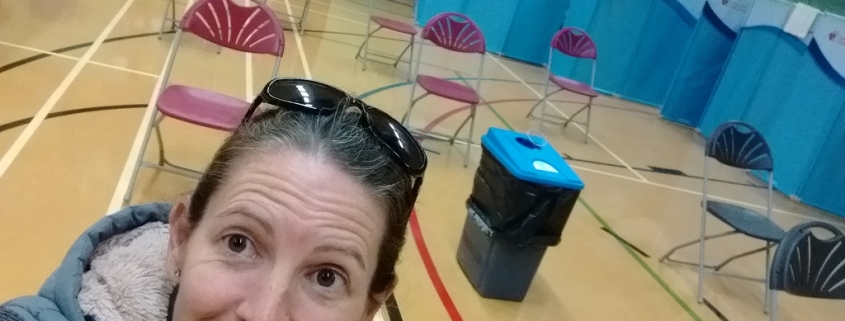
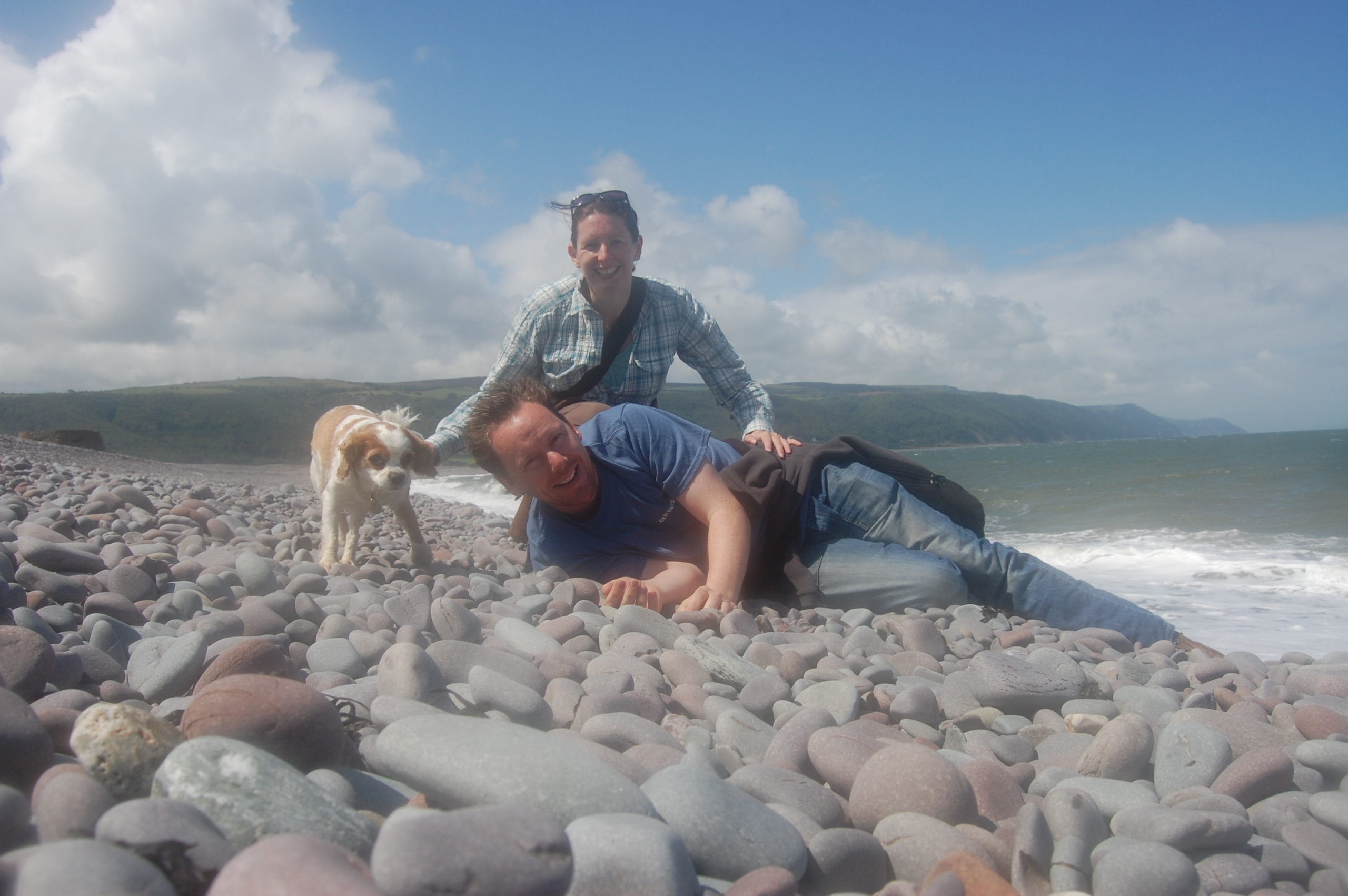
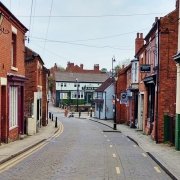
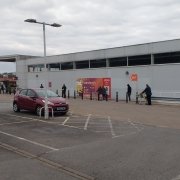
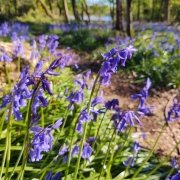
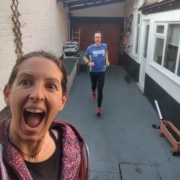
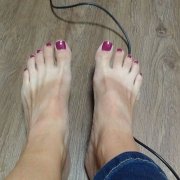
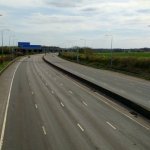
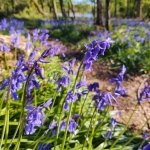
Oh my days is it Sunday again already!
Keep safe everyone and we will all be free again, hopefully.
Hi there Julie and Jason
We met Jason and your Charlie when he as walking on the beach at Alvor.
We live here now bought a park home on Camping Alvor.
Hi guys – I remember meeting you – good to hear from you and I hope you’re safe and well in Alvor, beautiful place. Jay
Great post Jay, thank you for putting into words much that I have been thinking but not articulating successfully.
Yes – we’re all in a large scale Truman Show, whether we signed up to be in the cast or not. Like you, we have a van sitting waiting for her first trip of the year . . . whenever that might be. Stay safe and please keep posting. 🙂
Cheers Jay and Julie. Spot on with the attitude. Everyone feels the pain of lockdown but just don’t let it break you. Unfortunately I had an old school friend that wasn’t able to deal with it, a Corona victim that didn’t have the virus. I’m sure he’s not alone.
Ah, jesus Simon, I’m really sorry to hear about your friend. An old mate of mine who lives alone didn’t pop up on social media or group video calls for a while so I gave him a call. Thankfully he’s fine, but it had me nervous, the levels of negativity we’re all swimming in are off the chart, it feels to me much worse than the old threats of nuclear war even – at least that was something remote, it didn’t come knocking on the door. Everything is temporary, the good and the bad. Cheers, looks after yourself, Jay
Wise words. I think we have a few more weeks of this to go before any easing of the rules. its great to hear of so many people out there helping in the communities.
I am keeping busy volunteering, I am sewing scrubs for the NHS. There is a local group on Facebook. The sewing is a great way to pass the time and gives me focus and allows me to contribute for a common good and seeing all the heart felt thanks from those working on the front line.
There are plenty of local community groups on Facebook who are posting help requirements. There are non-sewers in our group whose role is to distribute/collect items, every extra pair of hands makes a difference to someone.
Keep posting, love reading your updates.
Stay safe and keep up the fitness.
Your eerily quiet photo of Junction 26 made me shudder. Back in the 1990’s I spent every weekday morning stuck in rush hour traffic there, on my slow way to work in Nottingham. What I would have given for a clear road like that! We used to live just up the road from you, at Golden Valley near Riddings before moving to Devon in 1999. I have been following your excellent blog for some years now and had just put my car up for sale before we went in to lock down, intending to put the proceeds towards a motorhome! Thank you for excellent commentary. Stay Safe. Richard
Know that feeling well Richard, we’ve spent enough years crawling along or under that motorway. **Shudder** It’s a lane wider these days and almost empty again this morning. It’ll be packed again soon enough eh? Cheers, Jay